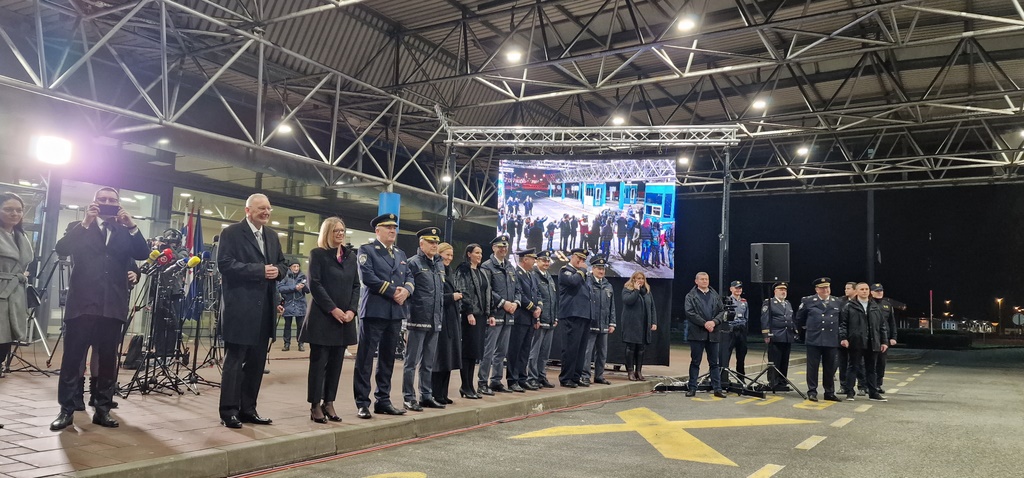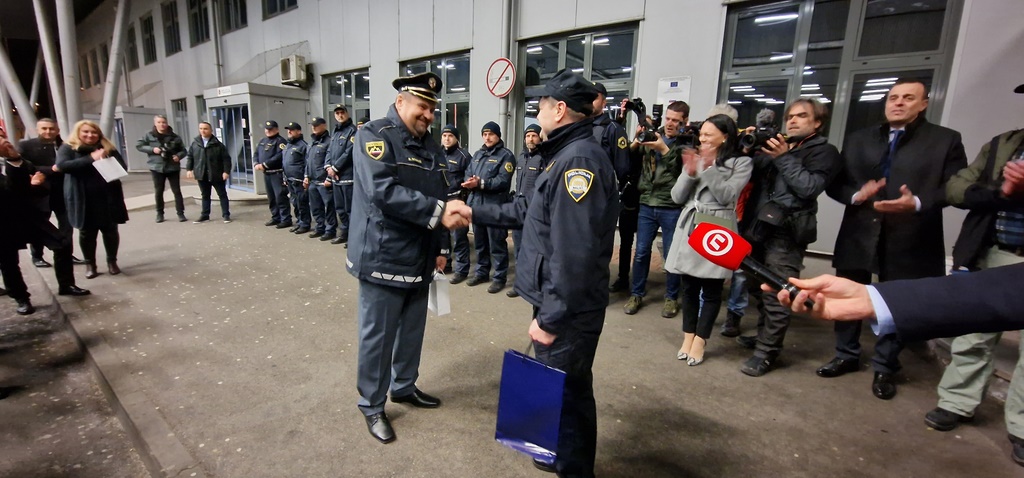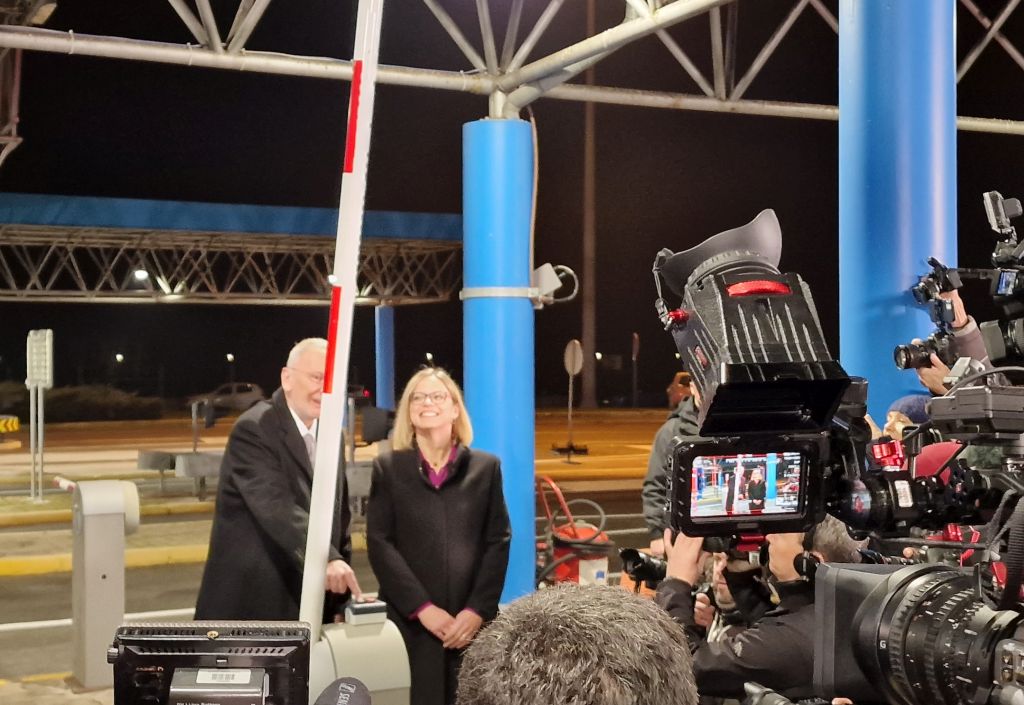Neighbouring country Croatia joins Schengen on 1 January 2023. Minister of Public Administration and Acting Minister of the Interior Sanja Ajanović Hovnik and Acting Director General of the Police Boštjan Lindav have attended the Schengen joining celebration at the Obrežje–Bregana border crossing point. The Minister also took the occasion to meet with her Croatian counterpart, Minister of the Interior Davor Božinović, declaring that we are "witnessing a historic event for Croatia".

The Ministers of Slovenia and Croatia symbolically announced Croatia's entry into the Schengen Area by lifting the ramps at the border crossing and turning on the green light at the traffic lights, which signal authorised passage of the border. "This event follows years of preparations from both sides of the border", Slovenian Minister said, underlining that Slovenian Police shall continue to provide the highest level of security in line with the drafted strategy.
As of 1 January 2023, Croatia is a full member of the Schengen Area. The border controls on the internal land and sea borders will be lifted as a result, whereas the controls on the internal air borders are scheduled to be lifted on 26 March 2023.
Slovenian Minister took the occasion to recall the recent 15th anniversary of Slovenia's own entry into the Schengen Area, on 21 December 2022. In this period, we "experienced the advantages and benefits of one of the greatest achievements of the European Union". The residents of the border regions will be able to feel these the most, as crossing the border will be possible everywhere with a valid travelling document after the abolishment of border controls. All cross-border communication will also be easier as will all forms of closer cooperation. Daily migration of workers across the Schengen internal borders will see a major ease. Border regions in both countries will see simplified coordination and harmonisation of cross-border projects. The economy and tourism sectors are expecting very positive overall effects with smoother cross-border traffic, which promises the end the summer tailbacks and traffic congestions, which had previously caused heavy burden for the environment.

Changes to border crossing between Slovenia and Croatia after 1 January 2023
Croatia's entry into the Schengen Area will change the border-crossing regime between Slovenia and Croatia. Border controls will be lifted at the land border between Slovenia and Croatia and free flow of traffic will be allowed through the border crossing points. All travellers meeting the requirements (having a valid passport for crossing the border) will be able to cross the border between these two states anywhere.
A temporary traffic regime will be put in place at all land border crossing points with Croatia, allowing the border to be crossed safely and as smoothly as possible, without the need to stop. All road users are therefore advised to observe the temporary traffic signals and to take particular care when driving in the areas of the former border crossing points.
Police will continue to maintain the highest level of security
The Slovenian Police have been preparing for Croatia’s entry to the Schengen Area for quite some time already. The Police have adopted a strategy that also defines the manner of implementing compensatory measures at internal borders with all neighbouring countries and the implementation of the EU law at internal borders. The goal is to continue to maintain the high level of security.
As of 1 January, police officers will largely be reassigned from border crossings to police stations for compensatory measures across the country. The focus will shift to the mobile police units on all the major roads, train and bus stations and other locations, which have been identified as potentially at risk for irregular migration, cross border crime and similar on the grounds of risk analysis and vulnerability assessments.
Police officers will remain present in the border region and the mixed Slovenian-Croatian patrols will continue to operate. Border facilities foreseen for performance of measures shall remain under police management. Other facilities and buildings will be made available to other users or removed.
The Slovenian Police have been continuously monitoring and analysing the situation not only at the border with Croatia, but in the entire territory of Western Balkans, which directly impacts the situation at the Slovenian border. All measures introduced by the Police are and will continue to be, even upon Croatia’s entry in the Schengen Area, adapted to the current security situation with the aim of ensuring Slovenia’s safety and preventing illegal migrations, including all possible measures allowed by the Schengen rules.
Slovenia is a determined and fully engaged Schengen state, and will continue to fulfil all its commitments. We are highly aware that safety is an extremely important value both for Slovenia and the entire EU.



